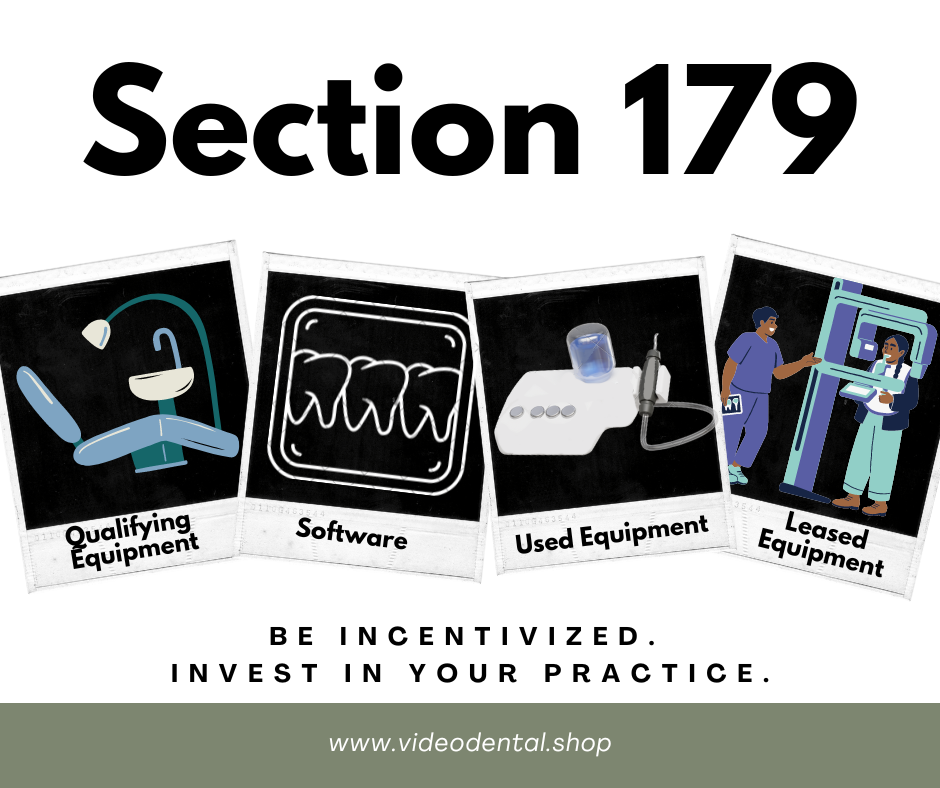
Be Proactive: Leverage Section 179 For Your Dental Practice!
It's the end of the year and for sure Section 179 is the talk of dental town.
So, what it IRS Section 179 and why should you care as a dental practice owner?
By definition, Section 179 of the Internal Revenue Code (IRS) is a tax deduction that allows businesses such as dental offices to deduct the full purchase price of qualifying equipment and/or software purchased or financed during the tax year. The Section 179 deduction is aimed at encouraging businesses to invest in themselves by providing an incentive to purchase, finance, or lease qualifying equipment.
Here’s how dentists can make use of Section 179:
- Qualifying Equipment: Dentists can take advantage of Section 179 by purchasing qualifying equipment for their practices. This may include dental chairs, CBCT units, Handheld X-ray machines, 3D intraoral scanners, dental instruments, office furniture, and other tangible personal property used in the business.
- Software: Certain types of software used for the dental practice may also qualify for Section 179 deduction. This could include practice management software, imaging software, and other software that is essential for the business.
- New and Used Equipment: Section 179 allows for the deduction of both new and used equipment. This provides flexibility for dentists who may choose to purchase used equipment to fit their budget.
- Leased Equipment: If dentists choose to lease qualifying equipment rather than purchasing it outright, they may still be eligible for a Section 179 deduction, provided the lease terms meet the criteria set by the IRS.
- Deduction Limit and Phase-Out: Dentists should be aware of the deduction limit and phase-out thresholds. For 2023, the deduction limit is $1,160,000, with a phase-out beginning at $2,890,000. Dentists should check for any updates to these limits and thresholds.
- Documentation: Proper documentation is crucial. Dentists should keep records of their equipment purchases, including invoices and receipts, to support their Section 179 deduction claims.
- Consult with a Tax Professional: Tax laws and regulations can change, so it's advisable for dentists to consult with a tax professional who is familiar with the latest tax codes and can provide personalized advice based on the specific circumstances of their practice.
By leveraging Section 179, dentists can potentially reduce their taxable income for the year in which the qualifying equipment is placed in service, providing a financial incentive for investing in their dental practices.
Disclaimer: Tax laws can change, so it's advisable to consult with a tax professional or check the latest IRS guidelines to get the most up-to-date information on Section 179 and its limits.





